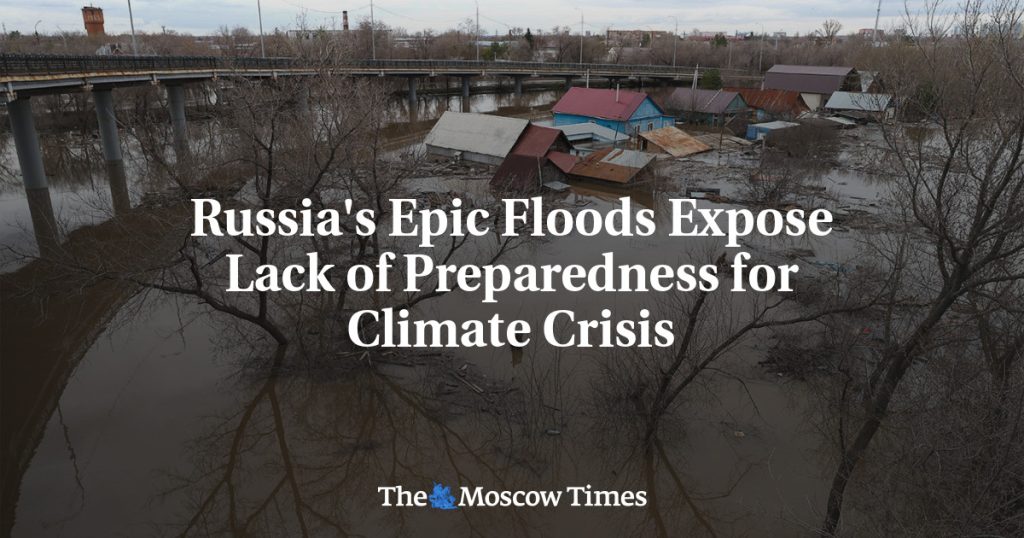The flooding crisis in Russia’s Orenburg region saw the Ural River overflowing and breaking records, leaving residents anxious and prompted to check the water levels constantly. The floods were worsened by above-average snowfall in winter and experts believe that such extreme weather events could become more frequent due to climate change. Entire settlements were submerged and thousands were evacuated across Russia as the floods spread to various regions. The response from authorities and volunteers was crucial in building makeshift dams in attempts to protect the cities from the floodwaters.
Residents in the flood-stricken regions came together to build dams using sandbags and other materials to prevent further damage to homes and properties. The floods forced countless people to evacuate and caused significant financial losses for those whose homes were submerged. The response varied across regions, with some residents praising local authorities for their management of the crisis, while others criticized the lack of adequate support and compensation. In some cases, residents were asked to dismantle the dams they built themselves under the threat of fines.
Despite warnings and evacuation efforts, some residents refused to leave their homes, fearing looters or scams. The ongoing crisis highlighted the need for continuous financial support from the state for those affected by the floods, as many may not have the means to rebuild their homes. As the floodwaters subside, questions arise about the future of living in flood-prone areas and the need for better disaster preparedness and prevention strategies. Experts warn that without proper climate adaptation plans, future floods could bring even more severe consequences.
While immediate relief efforts by authorities and volunteers were commendable, the long-term implications of the floods in Russia remain a concern. The lack of public discussion about climate change and the limited focus on adaptation strategies could leave the population at risk of future disasters. Businesses are urged to avoid building in flood-prone areas, and stronger government regulations are needed to prevent further damage. Financial constraints and other priorities may hinder efforts to address climate change and adaptation measures, leaving the population vulnerable to the impacts of global warming.
As Russia grapples with the aftermath of the floods, the need for a more coherent and robust approach to climate adaptation becomes apparent. The lack of strong public demand for climate action and the focus on other issues pose challenges to addressing the growing threat of extreme weather events. Without significant changes in policies and priorities, Russia may continue to face the devastating consequences of climate change without adequate preparation or response measures. Despite the immediate relief efforts and community solidarity in the face of the floods, the long-term outlook remains uncertain as the country navigates the challenges of a changing climate.


